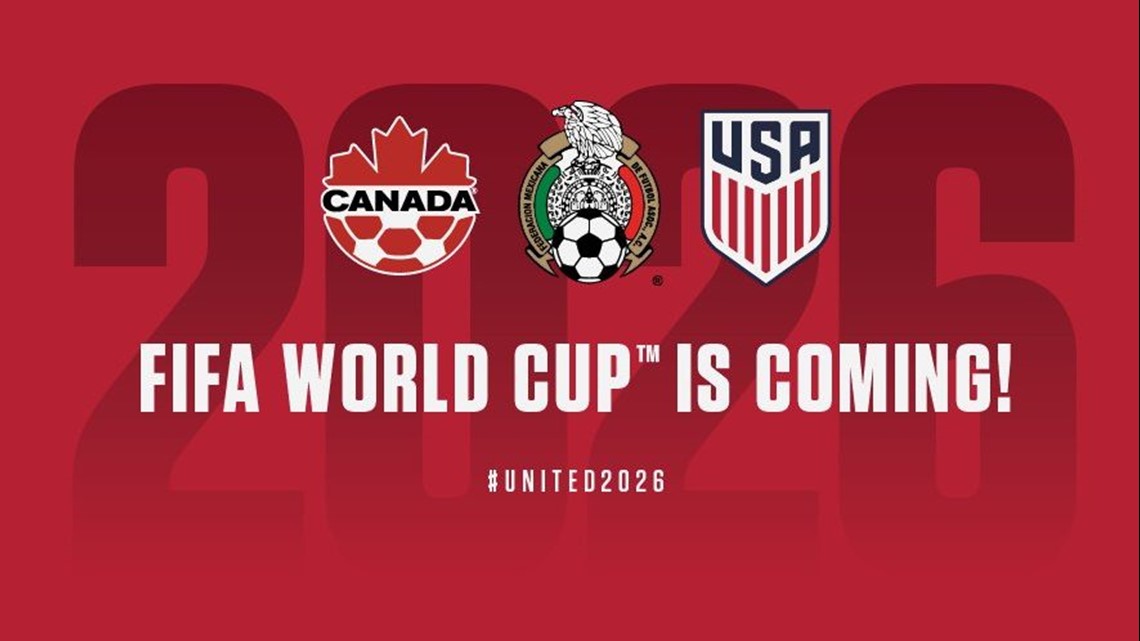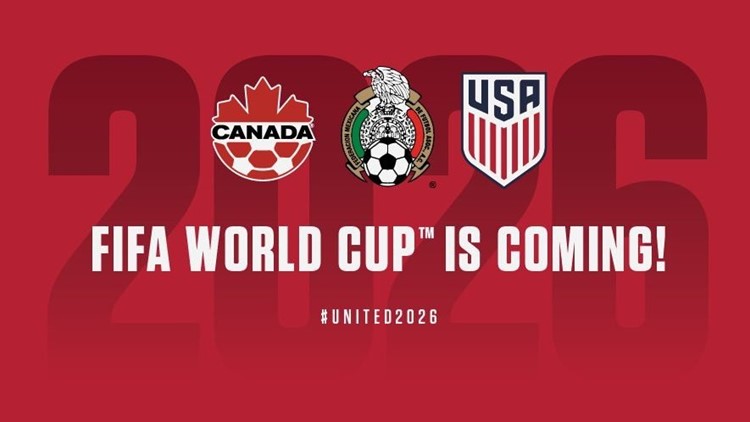

MOSCOW, Russia — A joint North American bid has been chosen as hosts of the 2026 World Cup, following a FIFA association member vote in Moscow Wednesday.
The last time the US hosted a World Cup was in 1994, and Mexico in 1986. Canada has never previously hosted World Cup matches.
“Hosting the 2026 FIFA World Cu is a rare and important moment to demonstrate that we are all truly united through sport,” said Carlos Cordeiro, President of US Soccer and Co-Chair of the United Bid.
The vote, in which all FIFA associations were, for the first time, eligible to vote for the host, was cast at the 68th FIFA Congress on the eve of the 2018 edition of the tournament, which begins Thursday with the official opening ceremony.
The United bid won by a 134-65 margin, with one vote for “neither” host. Seven federations — the four bidding nations along with three US dependent territories — recused themselves.
The first match of the 2018 tournament, between hosts Russia and Group A rivals Saudi Arabia, kicks off at 6 p.m. local time (11 a.m. ET) on Thursday.
In eight years, the US, Mexico and Canada will play host to the largest edition of the tournament to date — 48 teams playing 80 matches across 34 days.
Under the North America proposal, 60 of the tournament’s matches will be held in the US, including everything from the quarterfinals onwards, while Mexico and Canada will host 10 games each.
An image posted by the official 2026 Wold Cup Twitter account lists Philadelphia as one of the venues that will be hosting games.
After the controversial award of the 2018 and 2022 tournaments to Russia and Qatar, respectively, FIFA has promised a “more open and transparent” vote this time. The voting of the national associations will be published at the conclusion of Congress.
Previous hosts had been decided by the FIFA Executive committee, now known as the FIFA Council.
Fraught relations
Since the unified World Cup bid was announced in April 2017, political relationships between the US and its proposed co-hosts has been touchy at times.
Recently US President Donald Trump called Canadian Prime Minister Justin Trudeau “meek and mild” in a tweet over a tariff dispute following a G7 meeting.
Tariffs imposed on Mexico along with plans for a border wall have also ruffled feathers south of the border.
There have also been worries that his travel ban blocking immigration from several Muslim-majority countries, which is being challenged in the US Supreme Court could affect fans, officials and players from attending the tournament.
However, Trump has promised FIFA that foreign teams, officials and fans will be able to travel to the US.
The United bid shared with CNN Sport a letter sent to FIFA in March by the US government which said it “intends to issue visas, subject to eligibility under U.S. law, without regard to race, skin color, ethnic, national or social origin, gender, language, religion, political opinion or any other opinion, disability, wealth, birth or any other status, or sexual orientation.”
The statement said that the bid organizers were confident that “every eligible fan and member of our FIFA family will have unhindered access to our country to experience and celebrate the 2026 FIFA World Cup.”
One-sided race
The outcome of the vote had been expected, despite a tightening of the race in recent days.
Ahead of Wednesday’s ballot, the “United” bid from North America came out on top in a FIFA evaluation, with various aspects including stadiums, accommodation, transport and organizing costs factored in.
Out of 5, the joint bid got a score of 4, while the Moroccan bid scored just 2.7, with the North African bid deemed “high risk” in three areas because of a lack of infrastructure to host the 80-game tournament.
The United bid also estimated double the profits that the Morocco bid had calculated — $10 billion to $5 billion for the North African nation.
Morocco has said it needs to spend almost $16 billion (£12 billion) on infrastructure while the North American bid’s revenue forecast ($14.3bn) far outstrips what Morocco has to offer ($7.2bn).
Exerting influence
In April, Trump had earlier courted controversy with comments made about the vote.
“The US has put together a STRONG bid w/ Canada & Mexico for the 2026 World Cup,” Trump tweeted.
“It would be a shame if countries that we always support were to lobby against the U.S. bid.
“Why should we be supporting these countries when they don’t support us (including at the United Nations)?”
The tweet caused FIFA to direct attention to the organization’s ethics rules governing the bid process and “to the Bid Rules of Conduct incorporated therein,” a spokesman said.
Morocco’s bid hadn’t been without its problems either.
In addition to its low evaluation score, FIFA’s evaluation of the Morocco bid also raised concerns about the potential treatment of the LGBT community.
“There is a risk of discrimination based on sexual orientation as a consequence of the country’s legislation on the matter,” the FIFA assessment said.
Regarding sexual orientation, the North American bid pledged to use its leverage to reduce the risk of discrimination and harassment in Mexico and the US in particular.



